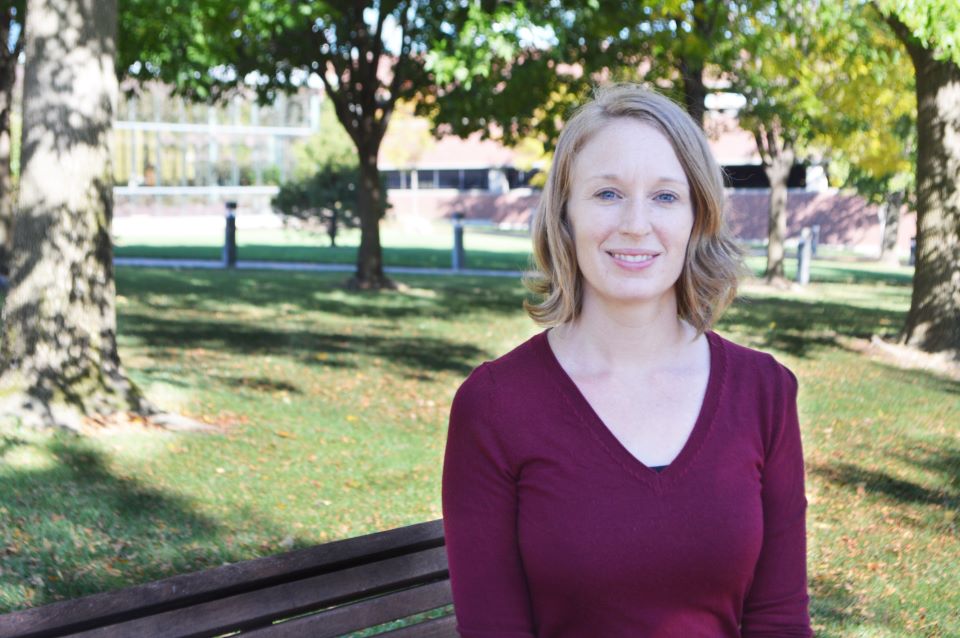Ready to Spring Clean? SLU Professor Amanda Reed Offers Tips to Benefit Your Health and Your Budget
Bridjes O'Neil
Communications Specialist
bridjes.oneil@slu.edu
314-282-5007
Reserved for members of the media.
Between the weeks of icy weather, work-and-school-at-home, and illness due to COVID-19, you may feel like the many hours you’ve spent indoors have left your home worse for the wear.
Now that the season has changed, it is the perfect time to tackle spring cleaning. It feels great to open the windows and remove the cobwebs. Amanda Reed, assistant professor and director of the Medical Laboratory Science program at Saint Louis University, offers advice on how to scrub your home from top to bottom.
Items that can accumulate dust, harbor insects like cockroaches and their feces, and allow moisture to build up are not good for a person’s overall health. Reed recommends decluttering your home and conducting routine home maintenance such as changing the furnace filter and testing radon levels every two years per the Environmental Protection Agency to reduce the amount of indoor pollution.
Reed said indoor air pollutants can increase if not enough clean outdoor air is brought into the home. Health issues can range from irritation of the eyes, nose and throat to more serious conditions such asthma attacks that can reside in poorly maintained HVAC systems.
If temperatures are too cold to open the windows or you suffer from springtime allergies, air purifiers can reduce the number of airborne pathogens and contaminants in a person’s home. This includes particles that carry the COVID-19 virus as well as smoke, cooking fumes, dust mites, mold, pollen and pet dander.
Reed cautions to avoid cleaning products that have high volatile organic compounds (VOCs), which can lead to increased indoor air pollution. VOCs are chemicals that both vaporize into air and dissolve in water and can be toxic. VOCs are emitted by a wide array of products numbering in the thousands. Examples include air fresheners, tobacco smoke, pesticides, paint and paint strippers.
Cleaning has become more important since COVID. However, this sudden boost of cleaning has increased the prices of goods and related services. So, people are looking into alternatives that kill viruses, germs and bacteria, but at a much budget-friendly price. Reed said a simple distilled white vinegar can be used as a cleaner, though not a disinfectant.
“Although it does kill some bacteria such as E. coli and salmonella. It can be used on its own or combined with baking soda to clean a variety of household surfaces such as glass, windows, sinks, and faucets,” Reed said. “However, it should never be mixed with bleach as it can produce dangerous fumes and it should not be used on wood, granite, marble or aluminum.”
She describes one cleaning and disinfecting hack that she said might surprise most people.
“If you want to disinfect, the CDC recommends cleaning surfaces first with soap and water, then you can use a disinfectant,” Reed said.
Reed reminds people not to overlook cleaning and disinfecting under the couch and under and behind the refrigerator.
“It’s a good idea to wipe down the sides of the refrigerator with warm soapy water, clean the drip pan, and clean off the condenser,” Reed said. “This also helps to prolong the life of your refrigerator and cut down on energy usage.”
About Saint Louis University
Founded in 1818, Saint Louis University is one of the nation’s oldest and most prestigious Catholic institutions. Rooted in Jesuit values and its pioneering history as the first university west of the Mississippi River, SLU offers nearly 13,000 students a rigorous, transformative education of the whole person. At the core of the University’s diverse community of scholars is SLU’s service-focused mission, which challenges and prepares students to make the world a better, more just place.


















